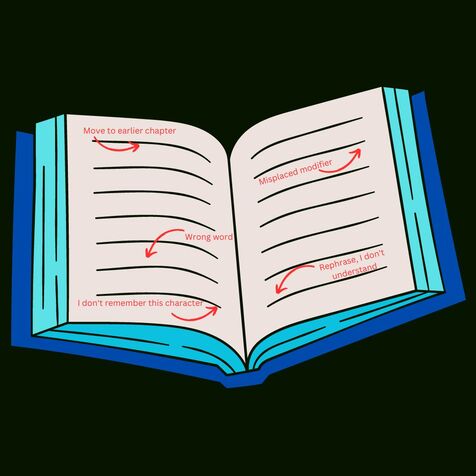|
If you're friends with any writers, there may come a time when you're asked to beta read their book. Maybe you're a writer yourself, maybe not, but either way beta reading is different from reading a typical book. If you've never beta read before and don't know how, this post is for you! Here are five steps for how to beta read.
Step 1: Upfront Questions Before you agree to beta read, ask the writer some key questions. Your goal is to determine if you're the right audience for this book. Ask for: genre, age group, word count, brief pitch.
Step 2: Set Expectations After you agree to beta read, ask the writer what their expectations are.
Step 3: The Read Now you're ready to read.
Step 4: Summary After your finish reading, you may have some overall thoughts to put together in a summary.
Step 5: Letting Go
Ready to go beta read? Have more advice for beta readers out there? Let's discuss in the comments!
0 Comments
Leave a Reply. |
Archives
April 2024
Categories
All
|


 RSS Feed
RSS Feed